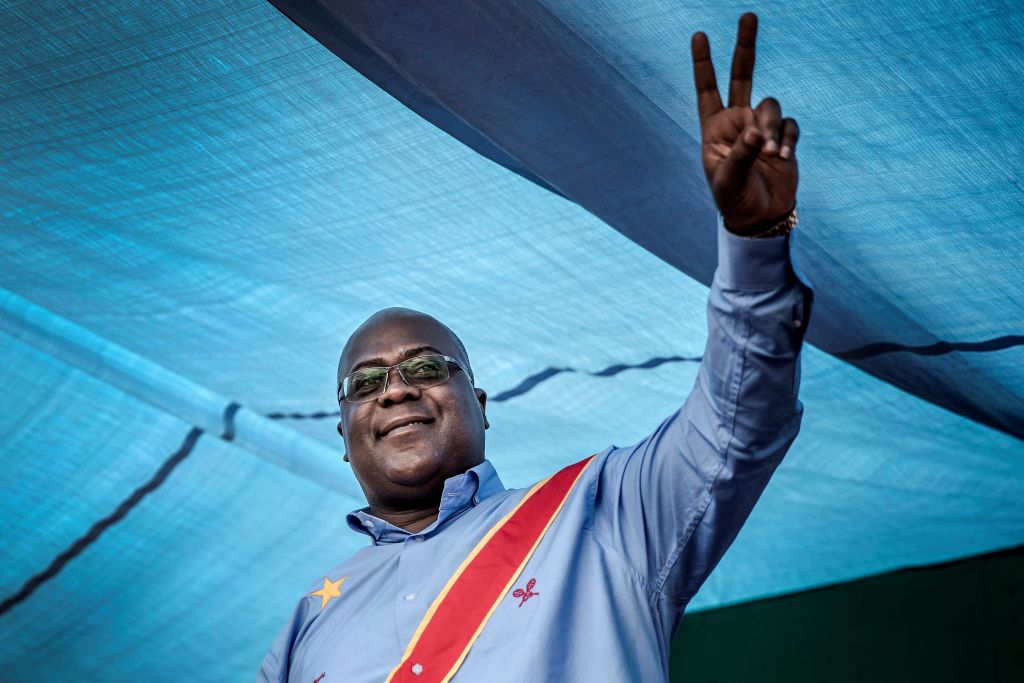
Felix Tshisekedi declared winner of DR Congo presidential poll

Opposition leader Felix Tshisekedi has been declared as the winner of the last month’s presidential election in the Democratic Republic of Congo, the country’s electoral commission declared on Thursday.
Corneille Nangaa, the president of the election commission (CENI), told a news conference at about 0200 GMT that Tshisekedi won with 38.57 percent of more than 18 million ballots cast.
“Felix Tshisekedi Tshilombo is declared the provisionally- elected president of Democratic Republic of Congo,” Nangaa said, to a mixture of cheers and gasps inside CENI headquarters.
The result sets the stage for the country’s first democratic transfer of power.
The outcome of the disorganised and contentious December 30 poll is likely to be contested by another opposition leader, Martin Fayulu.
Vote tallies by Congo’s Catholic church showed Fayulu as victor, according to two diplomats briefed on the findings.
In the Kinshasa neighborhood of Limete where Tshisekedi lives, thousands of people danced in the streets in celebration and cars slowed down and honked their horns.
If Tshisekedi’s victory is confirmed in the next 10 days by the constitutional court, he will become the first leader to take power at the ballot box since Prime Minister Patrice Lumumba, who was toppled in a coup less than three months after independence in 1960 and killed four months later.
Opposition fears that authorities would rig the vote in favor of Kabila’s hand-picked candidate, Emmanuel Ramazani Shadary, did not materialize as Shadary finished a distant third to Tshisekedi and Fayulu, with about 4.4 million votes.
However, the result, which observers said was marred by a spate of irregularities, is certain to fuel further suspicion among Fayulu’s supporters that Tshisekedi, shown by the last opinion polls before the election to be running well behind Fayulu, struck a power-sharing pact with Kabila.
Fayulu was backed by two prominent foes of Kabila, both of whom were barred from standing in the election. Kabila referred to one of them, ex-provincial governor Moise Katumbi, as “Judas” in a recent interview with local media.
Tshisekedi’s camp has acknowledged contacts since the vote with Kabila’s representatives but said they were aimed at ensuring a peaceful transition and denied there had been any kind of deal.
Tshisekedi is the son of the legendary Etienne Tshisekedi, who led opposition to three successive presidents over 35 years. Felix’s profile rose after his father died in 2017, soon after negotiating the terms of a transition period when Kabila refused to step down at the official end of his mandate the previous year.
Losing candidates can contest Tshisekedi’s victory before Congo’s constitutional court, which has 10 days to hear and rule on any challenges.
Any widespread perception the election has been stolen could set off a destabilizing cycle of unrest, particularly in the volatile eastern borderlands where Fayulu enjoyed some of his strongest support.






